Meet the Youth Indigenize the Senate 2019 participants
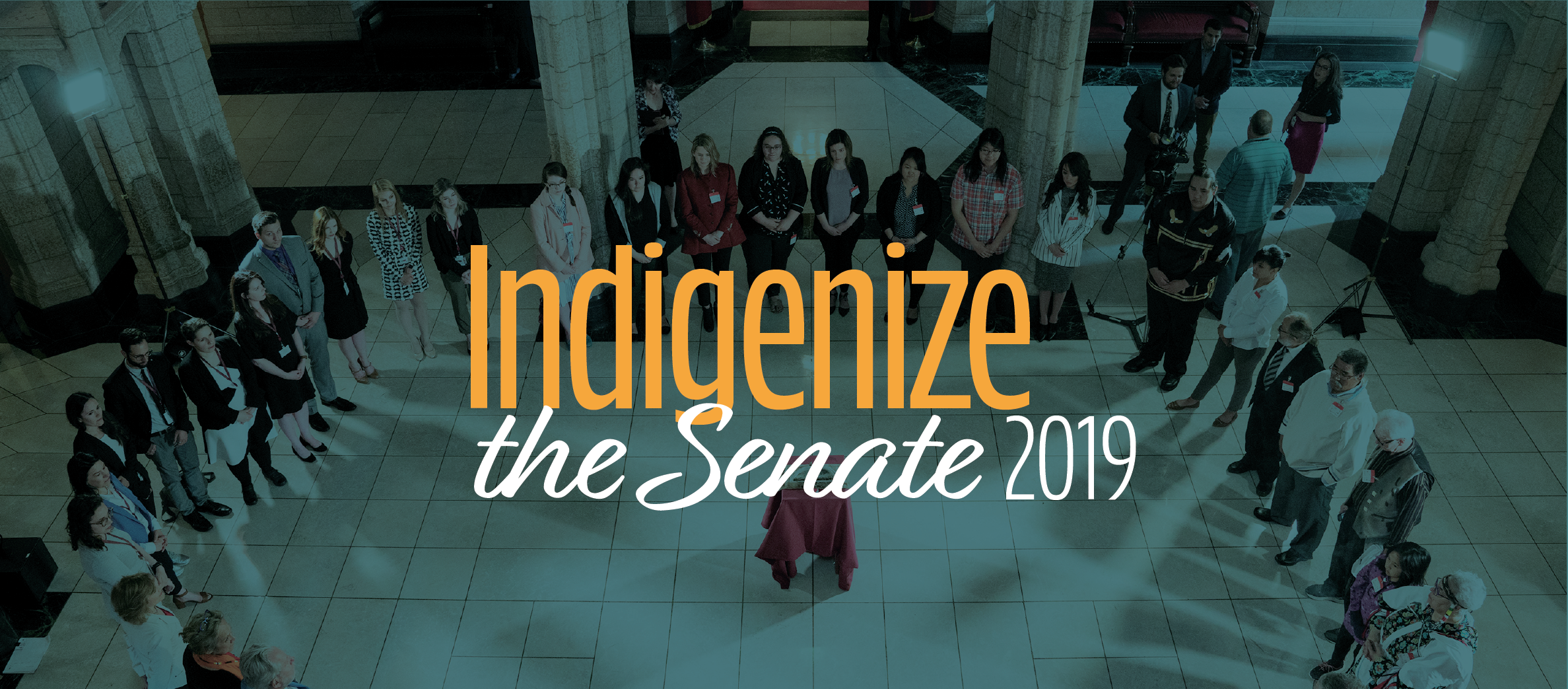
Senators appreciate how powerful young people’s voices are. For the fourth year in a row, they asked Canadians from across the country to nominate Indigenous youth leaders from their communities so they can share their experiences and ideas with the Senate Committee on Aboriginal Peoples during an official public hearing.
This activity is part of Youth Indigenize the Senate, an initiative that brings Indigenous youth to Ottawa. Their testimony will help senators as they complete an important study on forging a new relationship between Canada and First Nations, Inuit and Métis peoples.
Youth bring unique insight into what is happening in their communities and offer a fresh perspective on what needs be done to make life better in their community.
By listening to youth share their success stories and identify challenges, the committee will learn what these young individuals think is at the heart of a new relationship and how the Senate can help.
Youth Indigenize the Senate 2019 will take place in Ottawa from June 4 to 6. It will give participants a behind-the-scenes look at the inner workings of Parliament and give them an opportunity to meet other Indigenous youth from across the country.
Meet the Youth Leaders for Youth Indigenize the Senate 2019
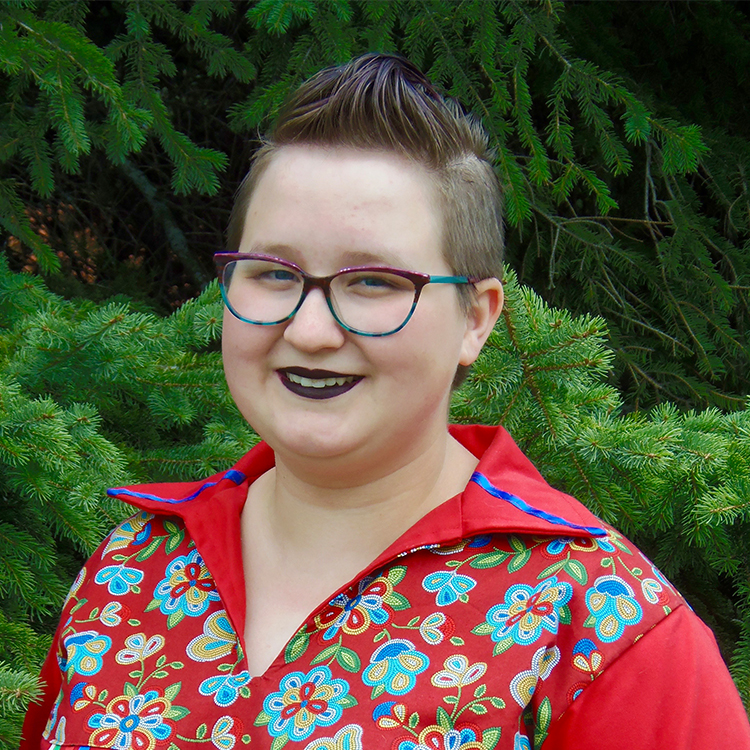
Aurora Leddy, 22 (Métis – Alberta)
Aurora is a proud Métis woman whose family originated from the St. Albert and Lac Ste. Anne areas of Alberta. She grew up in Edmonton, where she devotes her time to teaching Métis jigging classes and to visiting schools to teach youth about Métis culture. She is committed to sharing the history of her ancestors through dance so that the Métis culture is more visible in her community.
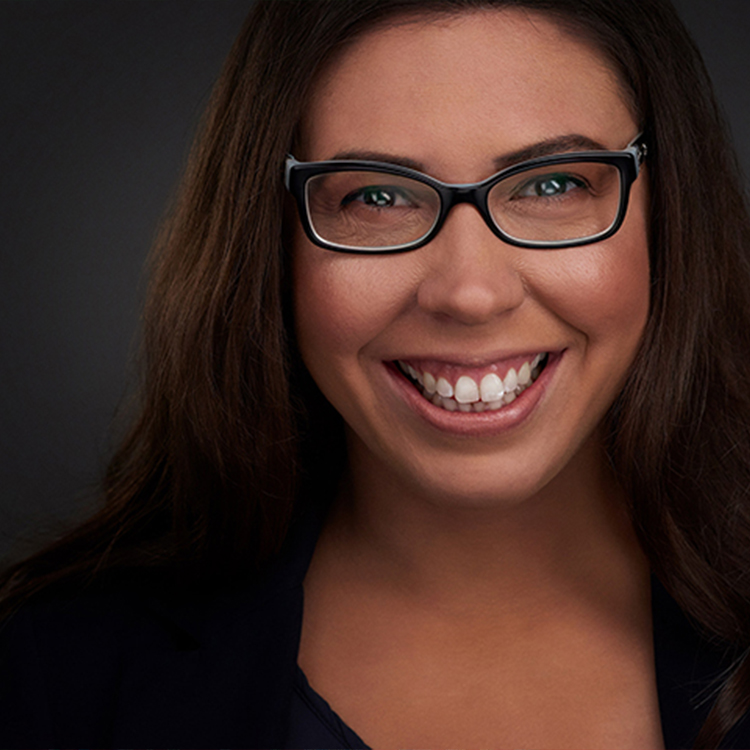
Christine Luza (First Nations – Ontario)
As a speaker, researcher and consultant, Christine advises educators and institutions on how to improve relations with Indigenous peoples. Christine sits on the steering committee of Naadmaagit Ki Group, an organization that aims to improve the health of urban Indigenous families. With roots in the M’Chigeeng First Nation in Ontario, she lives and works in Toronto, drawing inspiration from the leaders in her community in all of her work.
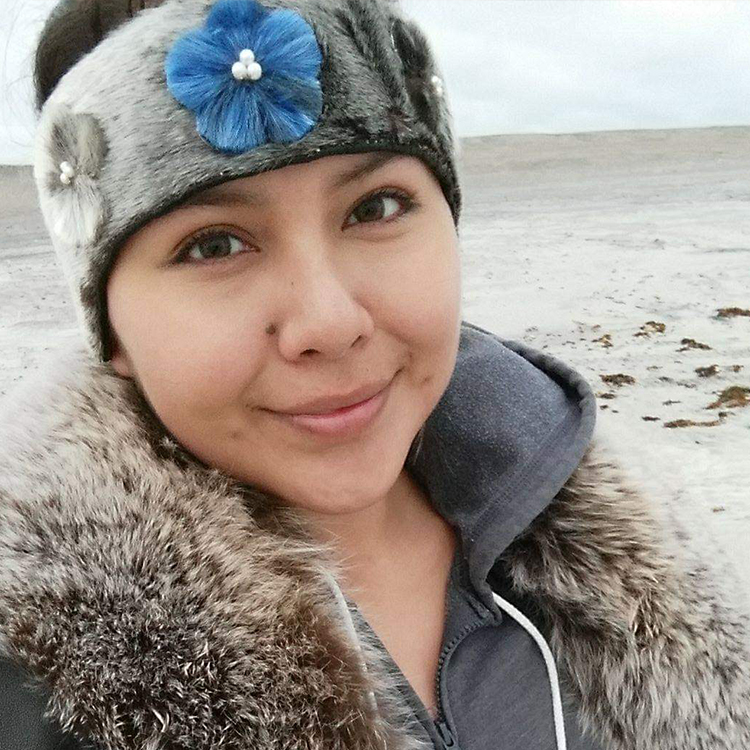
Jukipa Kotierk, 24 (Inuk – Nunavut)
Jukipa is a proud Inuk woman who embraces her identity in the work she does for her communities. Originally from Igloolik, Nunavut, she now lives in Iqaluit, where she works for the Quality of Life Secretariat with the Government of Nunavut and volunteers at the Nunavut Kamatsiaqtut helpline, the We Matter campaign and the Jack.org charity. Reminding fellow Inuit that they are resilient and capable, as well as encouraging other Indigenous peoples, racialized peoples and people of colour to take up space and voice their concerns, is what motivates Jukipa in her work. By working for the territorial government and volunteering, she hopes to build connections and expand resources for Inuit to gain equity, so they have the same opportunities as other Canadians.
Karlee Johnson, 23 (Mi’kmaw – Nova Scotia)
Karlee is a fluent Mi’kmaw speaker who believes that embracing one’s Indigenous language and culture is the key to success. She lives in the Eskasoni First Nation in Nova Scotia where she volunteers for a special needs support group and the Eskasoni Mi’kmaq Language Initiative. She earned a bachelor of science (medical sciences) from Dalhousie University last year and applies her academic background to her work as a capacity development lead for cancer learning with the local tribal council, the Union of Nova Scotia Indians. She draws inspiration from her parents, fiancé, family, friends and the Eskasoni community in carrying out her work in all that she does. Karlee hopes to become a positive role model to fellow Indigenous youth in Canada.
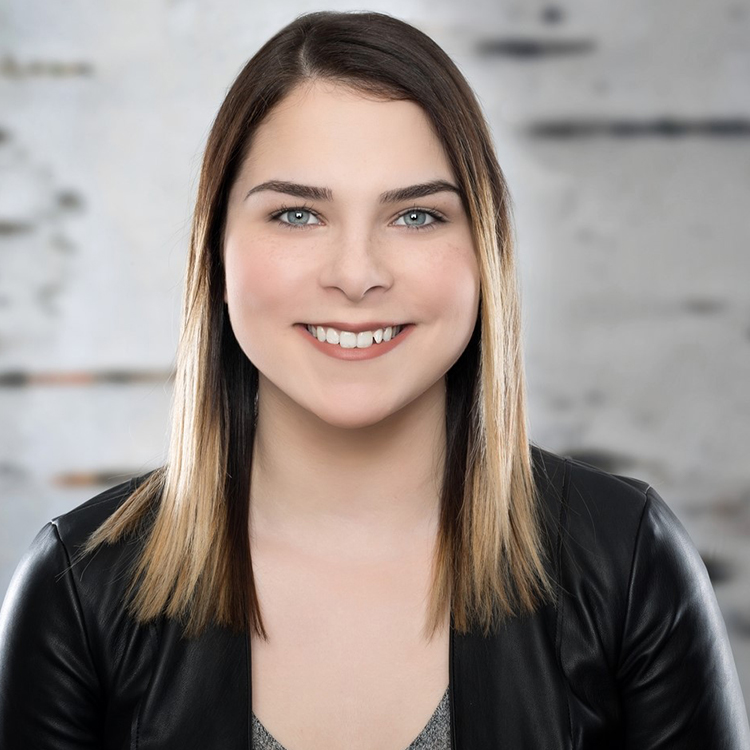
Megan Hébert-Lefebvre, 18 (First Nations – Quebec)
Megan’s parents pushed her to get involved in her community at an early age; by doing so she discovered her Abenaki culture and demystified the myths and stereotypes associated with Indigenous peoples in Canada. She works as a youth cultural officer at the Grand Conseil de la Nation Waban-Aki in Wôlinak and Odanak in Quebec, near her region of Saint-Maurice. She develops digital media while integrating her culture through various platforms and she teaches graphic design to 12- to 24-year-olds for Niona, a digital production company that promotes Indigenous culture. She hopes that by encouraging young people to get involved in their community, they will reclaim their pride.
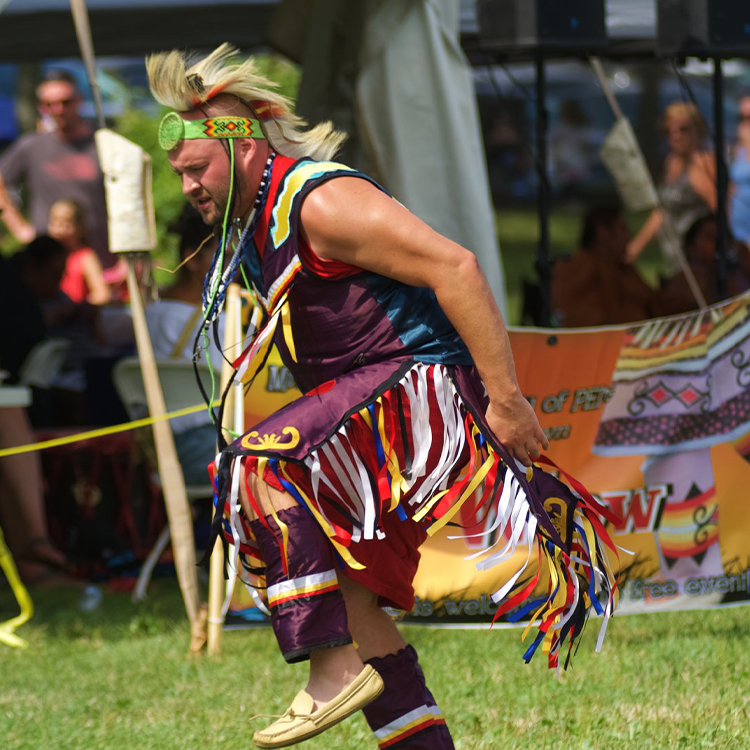
Richard Lush, 30 (First Nations – Prince Edward Island)
Richard encourages youth to be active and creative — he coaches and manages four football clubs, teaches songs for a youth drumming group and works with the Music is Alive program, which organizes school visits to teach youth about the importance of traditional and non-traditional music. He is also a founding member and actor of the only Atlantic Canada Indigenous theatre group, "Mi'kmaq Legends.” As a youth mentor, he hopes to be a positive role model for young people, to encourage them to make better life decisions and to pass on their cultural traditions to future generations. His son, Owen, his wife, Tess, and his family are his inspiration for the work he accomplishes in Prince Edward Island.
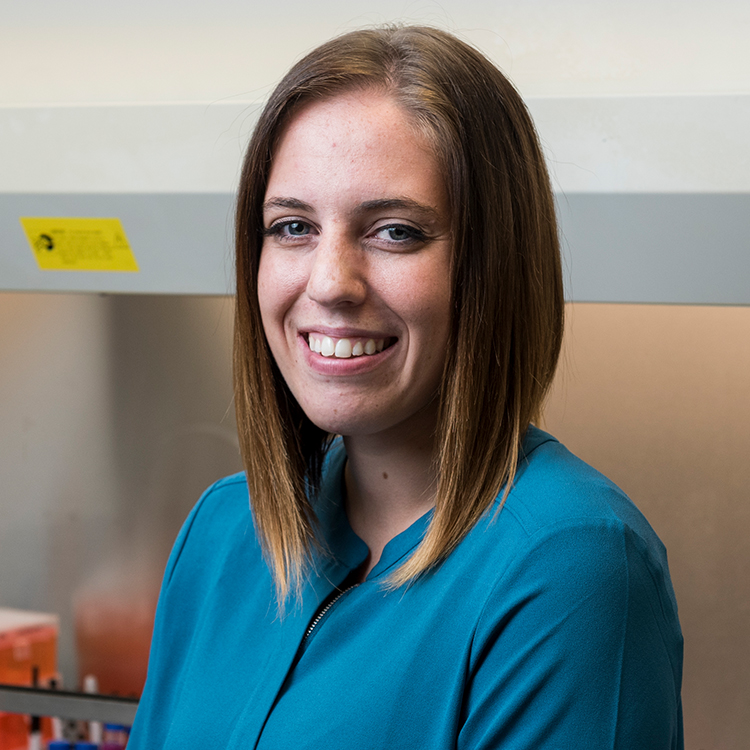
Taylor Morriseau, 24 (First Nations – Manitoba)
Taylor is a proud member of the Peguis First Nation, the largest First Nation community in Manitoba. She lives in Niverville and is a PhD student at the Children’s Hospital Research Institute of Manitoba. Using a preclinical mouse model, she researches the interplay between genes and environment in youth-onset Type 2 diabetes. In 2018, she was awarded a Vanier Canada Graduate Scholarship to reveal how a prominent genetic variant in Anishininiiwuk youth influences youth-onset Type 2 diabetes and how traditional diets may attenuate diabetes development.
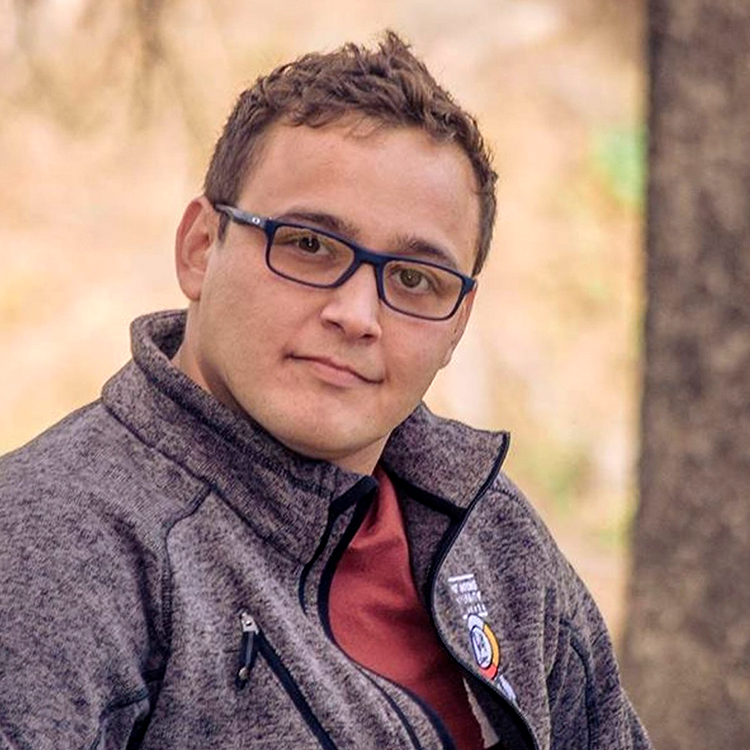
Trevor Dubois, 30 (Métis – Saskatchewan)
Trevor is a two-spirited individual originally from Prince Albert, Saskatchewan, who holds a degree in Indigenous social work. Trevor works with stakeholders to create programs and partnerships with the goal of addressing barriers and systemic injustices faced by marginalized groups in the community. Still living in Prince Albert, Trevor sits on multiple boards at the local and provincial levels and hopes to one day earn a doctorate in social work.
*Please note that as of July 31, 2022, the name of the Senate Committee on Aboriginal Peoples was changed to the Senate Committee on Indigenous Peoples. More information about this change can be found here.
Related articles
Tags
Committee news
Meet the Youth Indigenize the Senate 2019 participants

Senators appreciate how powerful young people’s voices are. For the fourth year in a row, they asked Canadians from across the country to nominate Indigenous youth leaders from their communities so they can share their experiences and ideas with the Senate Committee on Aboriginal Peoples during an official public hearing.
This activity is part of Youth Indigenize the Senate, an initiative that brings Indigenous youth to Ottawa. Their testimony will help senators as they complete an important study on forging a new relationship between Canada and First Nations, Inuit and Métis peoples.
Youth bring unique insight into what is happening in their communities and offer a fresh perspective on what needs be done to make life better in their community.
By listening to youth share their success stories and identify challenges, the committee will learn what these young individuals think is at the heart of a new relationship and how the Senate can help.
Youth Indigenize the Senate 2019 will take place in Ottawa from June 4 to 6. It will give participants a behind-the-scenes look at the inner workings of Parliament and give them an opportunity to meet other Indigenous youth from across the country.
Meet the Youth Leaders for Youth Indigenize the Senate 2019

Aurora Leddy, 22 (Métis – Alberta)
Aurora is a proud Métis woman whose family originated from the St. Albert and Lac Ste. Anne areas of Alberta. She grew up in Edmonton, where she devotes her time to teaching Métis jigging classes and to visiting schools to teach youth about Métis culture. She is committed to sharing the history of her ancestors through dance so that the Métis culture is more visible in her community.

Christine Luza (First Nations – Ontario)
As a speaker, researcher and consultant, Christine advises educators and institutions on how to improve relations with Indigenous peoples. Christine sits on the steering committee of Naadmaagit Ki Group, an organization that aims to improve the health of urban Indigenous families. With roots in the M’Chigeeng First Nation in Ontario, she lives and works in Toronto, drawing inspiration from the leaders in her community in all of her work.

Jukipa Kotierk, 24 (Inuk – Nunavut)
Jukipa is a proud Inuk woman who embraces her identity in the work she does for her communities. Originally from Igloolik, Nunavut, she now lives in Iqaluit, where she works for the Quality of Life Secretariat with the Government of Nunavut and volunteers at the Nunavut Kamatsiaqtut helpline, the We Matter campaign and the Jack.org charity. Reminding fellow Inuit that they are resilient and capable, as well as encouraging other Indigenous peoples, racialized peoples and people of colour to take up space and voice their concerns, is what motivates Jukipa in her work. By working for the territorial government and volunteering, she hopes to build connections and expand resources for Inuit to gain equity, so they have the same opportunities as other Canadians.
Karlee Johnson, 23 (Mi’kmaw – Nova Scotia)
Karlee is a fluent Mi’kmaw speaker who believes that embracing one’s Indigenous language and culture is the key to success. She lives in the Eskasoni First Nation in Nova Scotia where she volunteers for a special needs support group and the Eskasoni Mi’kmaq Language Initiative. She earned a bachelor of science (medical sciences) from Dalhousie University last year and applies her academic background to her work as a capacity development lead for cancer learning with the local tribal council, the Union of Nova Scotia Indians. She draws inspiration from her parents, fiancé, family, friends and the Eskasoni community in carrying out her work in all that she does. Karlee hopes to become a positive role model to fellow Indigenous youth in Canada.

Megan Hébert-Lefebvre, 18 (First Nations – Quebec)
Megan’s parents pushed her to get involved in her community at an early age; by doing so she discovered her Abenaki culture and demystified the myths and stereotypes associated with Indigenous peoples in Canada. She works as a youth cultural officer at the Grand Conseil de la Nation Waban-Aki in Wôlinak and Odanak in Quebec, near her region of Saint-Maurice. She develops digital media while integrating her culture through various platforms and she teaches graphic design to 12- to 24-year-olds for Niona, a digital production company that promotes Indigenous culture. She hopes that by encouraging young people to get involved in their community, they will reclaim their pride.

Richard Lush, 30 (First Nations – Prince Edward Island)
Richard encourages youth to be active and creative — he coaches and manages four football clubs, teaches songs for a youth drumming group and works with the Music is Alive program, which organizes school visits to teach youth about the importance of traditional and non-traditional music. He is also a founding member and actor of the only Atlantic Canada Indigenous theatre group, "Mi'kmaq Legends.” As a youth mentor, he hopes to be a positive role model for young people, to encourage them to make better life decisions and to pass on their cultural traditions to future generations. His son, Owen, his wife, Tess, and his family are his inspiration for the work he accomplishes in Prince Edward Island.

Taylor Morriseau, 24 (First Nations – Manitoba)
Taylor is a proud member of the Peguis First Nation, the largest First Nation community in Manitoba. She lives in Niverville and is a PhD student at the Children’s Hospital Research Institute of Manitoba. Using a preclinical mouse model, she researches the interplay between genes and environment in youth-onset Type 2 diabetes. In 2018, she was awarded a Vanier Canada Graduate Scholarship to reveal how a prominent genetic variant in Anishininiiwuk youth influences youth-onset Type 2 diabetes and how traditional diets may attenuate diabetes development.

Trevor Dubois, 30 (Métis – Saskatchewan)
Trevor is a two-spirited individual originally from Prince Albert, Saskatchewan, who holds a degree in Indigenous social work. Trevor works with stakeholders to create programs and partnerships with the goal of addressing barriers and systemic injustices faced by marginalized groups in the community. Still living in Prince Albert, Trevor sits on multiple boards at the local and provincial levels and hopes to one day earn a doctorate in social work.
*Please note that as of July 31, 2022, the name of the Senate Committee on Aboriginal Peoples was changed to the Senate Committee on Indigenous Peoples. More information about this change can be found here.



